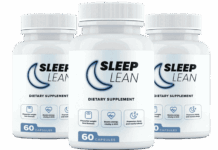UK scientists have gone on to conduct the first ever trial of a new drug for Alzheimer’s that is able to safely as well as successfully lower the levels of the very harmful tau protein, which is known to cause the disease.
The trial led by University College, London team represents the first time that a gene silencing form of approach has been adopted in dementia as well as Alzheimer’s disease.
This novel approach uses drug by name of BIIB080-IONIS-MAPTRx to silence gene coding in the case of the tau protein, also known as the microtubule-associated protein tau gene. All this prevents the gene from getting translated into the protein in a dose-dependent and reversible way. It also lowers the production of that particular protein and alters the course of the disease. One of the consultant neurologists from UCL Queen Square Institute of Neurology, Dr. Catherine Mummery, opined that they will have to put further research to gauge the extent to which the drug can slow the progression of the physical symptoms of the disease and analyse the drug in older as well as larger people groups and in a more diverse set of populations.
However, these results are a prominent step forward in assuring that one can successfully target tau through a gene silencing drug so as to slow or possibly even reverse Alzheimer’s disease and also other diseases that are caused by the accumulation of tau in the future, Mummery added.
It is well to be noted that the phase 1 trial too into account the safety of BIIB080 in terms of what it does to the body and how well it can go on to target the MAPT gene. 46 patients, with an average age of 66, were a part of the trial that happened from 2017 to 2020. The trial took into account three doses of the drug given via an intrathecal injection that were compared with the placebo. The results that got published in the Nature Medicine journal demonstrated that the drug was pretty well tolerated, with all patients completing the entire treatment period and more than 90% completing the post-treatment schedule.
Apparently, patients in both the treatment and placebo groups got to have either mild or moderate side effects; the most common was a headache once the drug was injected. That said, no serious adverse events were seen among the patient group that was given the drug.
The research also paid attention to two variations of the tau protein within the central nervous system, which was a reliable disease indicator during the entire study period. Additional 50% reduction in levels of total tau as well as phosphor tau concentration within the CNS after 24 weeks were found in both treatment groups, which went on to receive the highest drug dosage.
Notably, there are currently no treatments that target tau. However, aducanumab, lecanemab that have been approved recently for usage in certain situations by the USFDA go on to target a different disease mechanism within AD, which is the amyloid plaque mechanism.


















